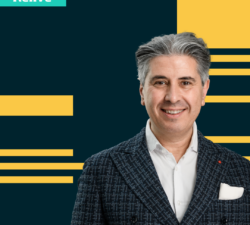Luxury brands failing to demonstrate sufficient progress in sustainability risk becoming less desirable and even obsolete, Stéphane JG Girod, Professor of Strategy and Organizational Innovation, has said.
“If we don’t reverse negative social and environmental trends, we could see a questioning of what luxury is, and of its relevance going forward,” he said at his LiTT webinar.
Half (50%) of participants polled that they felt that “just enough” was being done in their companies to comply and manage risk in the area of sustainability. Close to 20% thought their firm was lagging behind.
Girod said the luxury industry was under increasing pressure to create a new dimension of exemplarity. Instead of being an example of pure quality and creativity, it would need to also take on sustainability. This was down to forces including stakeholder activism, employees taking a stand, and requests from investors.
He added that there would be no basis for luxury at all if our healthy…


